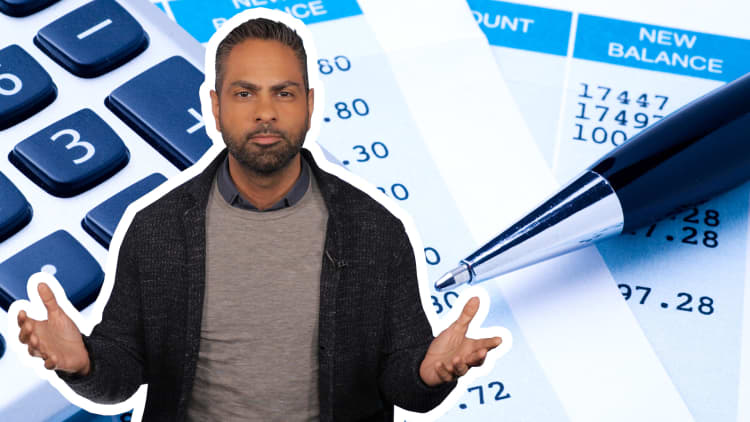Not only are female workers compensated less than their male counterparts, new research shows they also pay 18% more in banking fees, which include late fees, ATM minimum balance penalties and check-bouncing charges, per year.
That's according to a recent study from banking and investing app Stash, which analyzed over 500,000 people in its U.S. user base and 205 million transactions made over the past year with externally linked bank accounts. The survey found that men pay $182 in banking fees annually, while women pay $214 on average. That's about 18% more.
Women with lower incomes are impacted the most. While women earning between $50,000 and $100,000 a year pay 16% more in banking fees than men, those making less than $25,000 a year pay 23% more.
And regardless of their income bracket, women pay almost 30% more than men in overdraft fees, on average.
Stash CEO and co-founder Brandon Krieg points to compensation discrimination as the main cause for women's heightened banking fees. "Our natural conclusion based on the data is that this is another damaging byproduct of the gender pay gap," he tells CNBC Make It. "If women are simply making less than their male counterparts, it seems they're more vulnerable to predatory banking fees."
That's because, "on a macro level, the wealth gap may be putting women more at risk of dipping below their account minimums than men, resulting in these types of fees," Krieg explains.
How banks target consumers with overdraft fees
In an effort to protect consumers from unreasonable banking fees, the overdraft protection law passed in 2010 prevents banks from enrolling customers in overdraft protection programs automatically. While the regulation initially helped control the amount of overdraft fees issued, it's now been placed under review by the U.S. Consumer Financial Protection Bureau (CFPB) since overdraft fee revenue has dramatically risen in the last few years.
"The average overdraft fee has risen 50% in the last 20 years, from an average of $20 in 2000 to over $30 today," says Krieg. "This [CFPB review] is in response to previous practices where many banks enrolled customers in overdraft coverage automatically, often without their knowing."
If you're enrolled in this type of coverage, overdraft fees are issued when you overdraw your checking account. Instead of having your debit card declined, or your purchase canceled, your bank covers the difference and then charges you a fee, usually around $30 to $35. When banks are not upfront about overdraft fee programs, customers can easily end up with charges they didn't know where coming.
Although the overdraft protection law aims to inhibit this, "many people remain unaware that declining this type of overdraft coverage can help prevent fees, likely because big banks make the opt-in process confusing on purpose," Krieg says.
How to avoid paying fees
To avoid being surprised by overdraft fees, there are a couple of ways to protect yourself.
First, tell your bank that you'd prefer to decline overdraft coverage. While this might seem like an obvious solution, to many it isn't. As many as 70% of those who overdraft at least three times per year did not know that they could opt out of their bank's overdraft protection plan, Pew Charitable Trusts reports.
You can also look for a bank or checking account that doesn't charge overdraft fees in the first place. In June, Discover, made the decision to eliminate bank fees. JP Morgan Chase, Bank of America and Citigroup all now offer more banking services that do not allow overdraft fees as well.
Finally, there's always the option to call your bank and try to negotiate away an overdraft fee or other banking fee penalty, especially if it's your first offense.
Ramit Sethi, bestselling author of "I Will Teach You to be Rich," says it's usually possible to get out of a charge. His golden rule? Be polite, but firm, and remind your bank how loyal of a customer you are.
"90% of the time they're going to say, 'Wow, my computer just magically allowed me to waive that fee as a courtesy!" he says.
Don't Miss: Self-made millionaire Ramit Sethi uses these 3 credit card hacks to save time and money
Like this story? Subscribe to CNBC Make It on YouTube!



